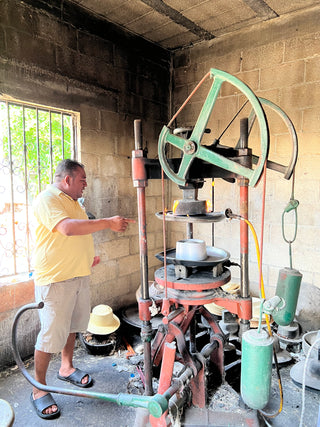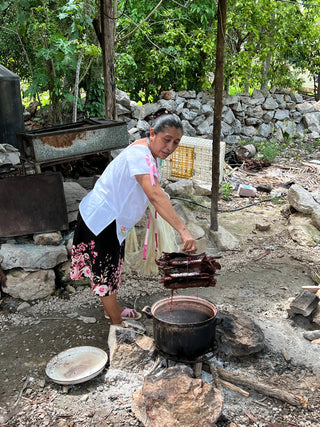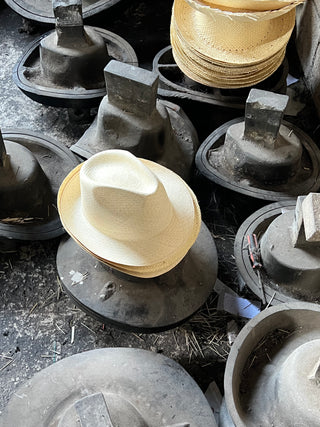
Jipijapa
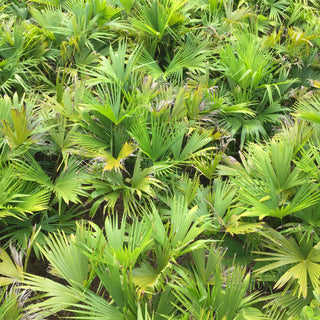
the PLANT
Known as the Jipijapa plant, the toquilla or Panama hat palm (Carludovica palmata) comes from the Ecuadorian lowlands, named after a small village in the Province of Manabí. Besides the well-known hats, Jipijapa is used to make fans, earrings, bracelets and baskets, among other objects. Panama hats became world-famous during the construction of the Panama Canal, when thousands of hats were imported from Ecuador for workers and were worn by historical figures such as Theodore Roosevelt, Eloy Alfaro, Napoleon III and Frank Sinatra.
In 2012, Jipijapa hat-weaving was added to UNESCO's list of Intangible Cultural Heritage. Countries like Mexico have given the hats new colors, textures and shapes. Several Mayan communities in the state of Campeche have been devoted to Jipijapa craftsmanship since 1800, when brothers Sixto and Pedro García introduced the plant to this country: after a long journey through Guatemala, they planted Jipijapas in the henequen-growing hacienda Santa Cruz, in the municipality of Calkiní.
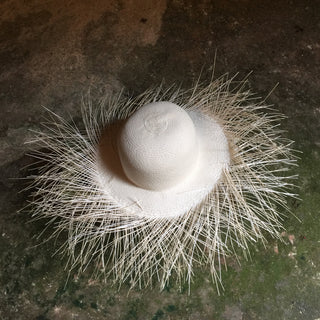
HIDDEN BEAUTY
The hat-making process begins three years after the Jipijapa is planted, to allow its leaves to achieve their full size. The sprouts are cut so the tender leaves can be removed and stripped with a needle. Then, the stalks are boiled with sulfur to give it a yellowish-white color and then left to dry. The quality of the hat depends on the hours it takes to make it: a hat with a looser weave can take twenty hours, while one with a tighter weave can take one month . Humidity is necessary to keep the plant fibers flexible enough to be easily woven, which is why artisans make them in natural or artificial caves. To maintain the shape of the hat while it's being woven, artisans use molds made from local wood, such as guayacan, sapodilla or tzalam or Caribbean walnut. Finally, the hat is ironed in a special press to give it shape according to the model. Proud of their roots and traditions, Jipijapa artisans are characterized by their dedication, patience and commitment. The vast majority of them learned weaving from their parents./collections/hats


